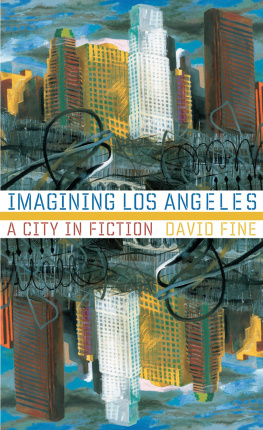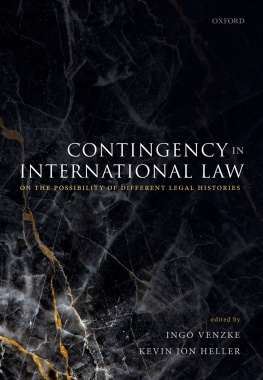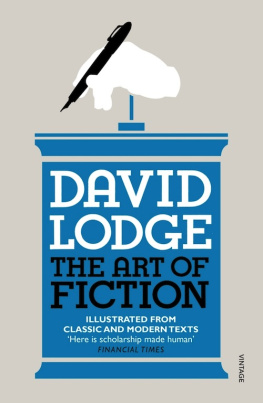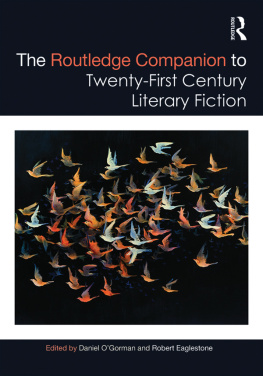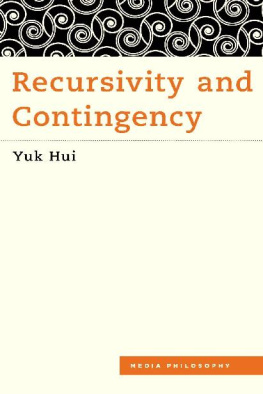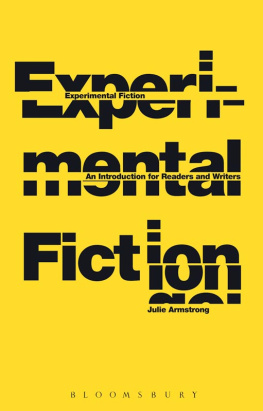David Wylot - Reading Contingency: The Accident in Contemporary Fiction
Here you can read online David Wylot - Reading Contingency: The Accident in Contemporary Fiction full text of the book (entire story) in english for free. Download pdf and epub, get meaning, cover and reviews about this ebook. year: 2020, publisher: Taylor & Francis Group, genre: Romance novel. Description of the work, (preface) as well as reviews are available. Best literature library LitArk.com created for fans of good reading and offers a wide selection of genres:
Romance novel
Science fiction
Adventure
Detective
Science
History
Home and family
Prose
Art
Politics
Computer
Non-fiction
Religion
Business
Children
Humor
Choose a favorite category and find really read worthwhile books. Enjoy immersion in the world of imagination, feel the emotions of the characters or learn something new for yourself, make an fascinating discovery.

- Book:Reading Contingency: The Accident in Contemporary Fiction
- Author:
- Publisher:Taylor & Francis Group
- Genre:
- Year:2020
- Rating:4 / 5
- Favourites:Add to favourites
- Your mark:
- 80
- 1
- 2
- 3
- 4
- 5
Reading Contingency: The Accident in Contemporary Fiction: summary, description and annotation
We offer to read an annotation, description, summary or preface (depends on what the author of the book "Reading Contingency: The Accident in Contemporary Fiction" wrote himself). If you haven't found the necessary information about the book — write in the comments, we will try to find it.
David Wylot: author's other books
Who wrote Reading Contingency: The Accident in Contemporary Fiction? Find out the surname, the name of the author of the book and a list of all author's works by series.
Reading Contingency: The Accident in Contemporary Fiction — read online for free the complete book (whole text) full work
Below is the text of the book, divided by pages. System saving the place of the last page read, allows you to conveniently read the book "Reading Contingency: The Accident in Contemporary Fiction" online for free, without having to search again every time where you left off. Put a bookmark, and you can go to the page where you finished reading at any time.
Font size:
Interval:
Bookmark:
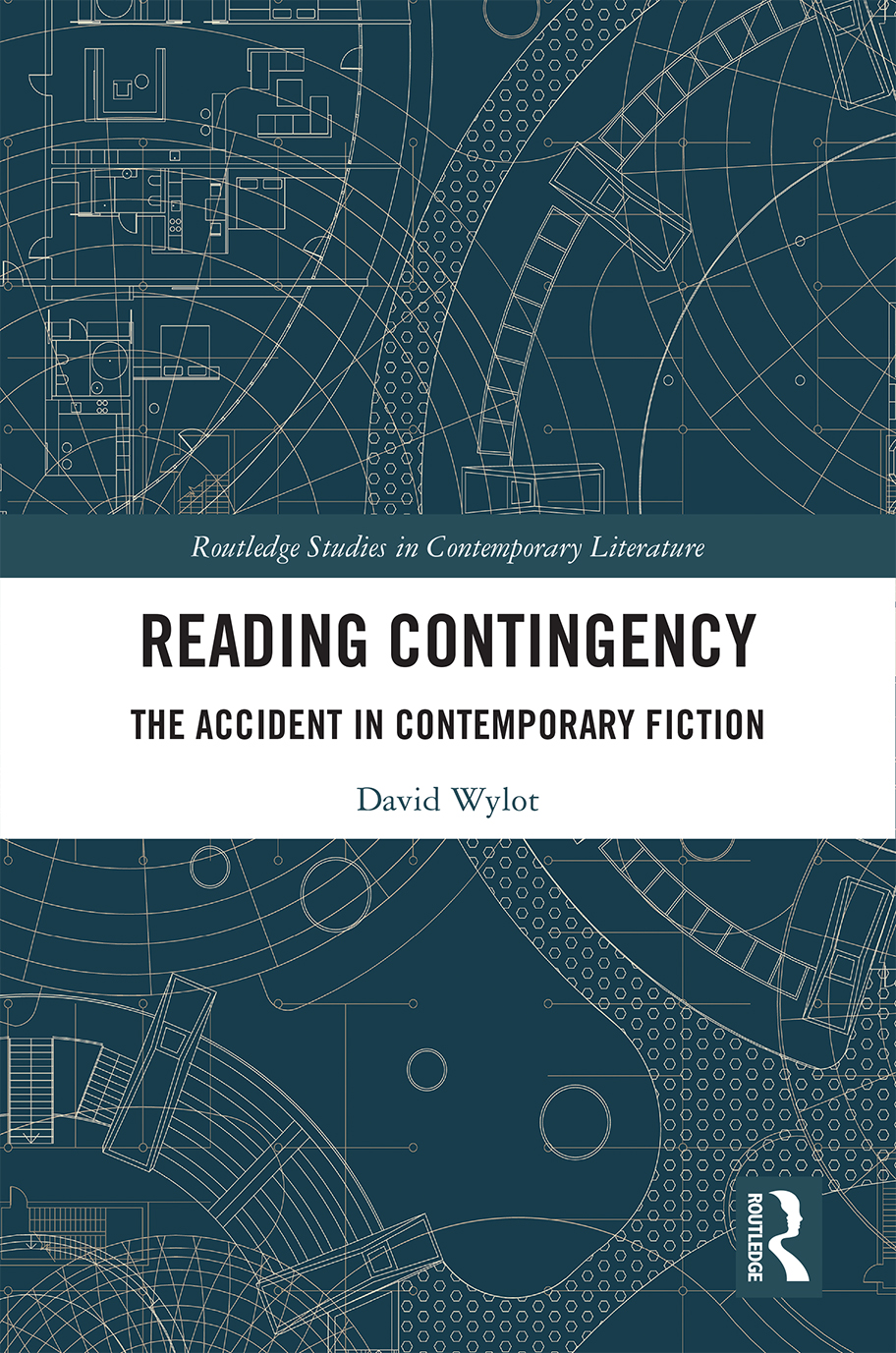
In Reading Contingency: The Accident in Contemporary Fiction, David Wylot constructs an innovative study of the relationship between plotted accidents in twenty-first-century British and American fiction, the phenomenology of reading, and a contemporary experience of time that is increasingly understood to be contingent and accidental. A synthesis of literary and cultural analysis, narratology, critical theories of time and the philosophy of contingency, the book explores the accidents imagination of contemporary time and the relationship between reading and living in novels by writers including A. M. Homes, Nicola Barker, Noah Hawley, J. M. Coetzee, J. G. Ballard, Jesmyn Ward, Jennifer Egan, and Tom McCarthy.
Dr. David Wylot is Lecturer in English at the University of Leeds.
34 The Humanist (Re)Turn
Reclaiming the Self in Literature
Michael Bryson
35 Approaches to Teaching the Work of Edwidge Danticat
Edited by Celucien L. Joseph, Suchismita Banerjee, Marvin Hobson, and Danny Hoey
36 Contemporary Capitalism, Crisis, and the Politics of Fiction
Literature Beyond Fordism
Roberto del Valle Alcal
37 Dissent and the Dynamics of Cultural Change
Lessons from the Underground Presses of the Late Sixties
Matthew T. Pifer
38 Collage in Twenty-First-Century Literature in English
Art of Crisis
Wojciech Drg
39 Patrick McGrath and his Worlds
Madness and the Transnational Gothic
Edited by Matt Foley and Rebecca Duncan
40 The Working Class and Twenty-First-Century British Fiction
The Working Class and Twenty-First-Century British Fiction
Phil OBrien
41 Reading Contingency
The Accident in Contemporary Fiction
David Wylot
For more information about this series, please visit: https://www.routledge.com
First published 2020
by Routledge
52 Vanderbilt Avenue, New York, NY 10017
and by Routledge
2 Park Square, Milton Park, Abingdon, Oxon, OX14 4RN
Routledge is an imprint of the Taylor & Francis Group, an informa business
2020 Taylor & Francis
The right of David Wylot to be identified as author of this work has been asserted by him in accordance with sections 77 and 78 of the Copyright, Designs and Patents Act 1988.
All rights reserved. No part of this book may be reprinted or reproduced or utilised in any form or by any electronic, mechanical, or other means, now known or hereafter invented, including photocopying and recording, or in any information storage or retrieval system, without permission in writing from the publishers.
Trademark notice: Product or corporate names may be trademarks or registered trademarks, and are used only for identification and explanation without intent to infringe.
Library of Congress Cataloging-in-Publication Data
A catalog record for this title has been requested
ISBN: 978-0-367-44141-8 (hbk)
ISBN: 978-1-003-00796-8 (ebk)
Typeset in Sabon
by codeMantra
This book would not have been possible without the support and encouragement from my colleagues, mentors, and friends. Ideas for it began at the University of York in Jane Elliotts classroom, and without Janes early and continued intellectual involvement this project would not exist. I was then lucky to gain the mentorship of my PhD supervisors at Queen Mary, Mark Currie and Shahidha Bari. Marks stewardship has had a profound impact on my intellectual development, and much of what is of value in this project undoubtedly comes from him. Shahidhas advice has always pushed me to consider the bigger picture both of the project and of academic life, and this book is a testament to her rigorous readings. I am also extremely grateful to my viva examiners for encouraging me to continue to develop the projects ideas and ambition. Patricia Waughs mentorship and questioning of the studys fundamental arguments and Caroline Edwardss indispensable guidance on refining and positioning its claims have both continually provided me with the motivation and intellectual push needed to complete this project. Furthermore, Reading Contingencys development would not have been possible without the brilliant guidance and support of Jennifer Abbott and Mitchell Manners at Routledge. And finally, I am extremely grateful to Julia Jordan and James Fisher for their meticulous feedback and extensive reader commentary on early versions of this manuscript.
Much of what is of value in this book exists because of the intellectual contributions made by many of my colleagues at Queen Mary between 2012 and 2019: James Dunkerley, Alexandra Effe, Katherine Fleming, Niall Gildea, Helena Goodwyn, Joel Grossman, Suzanne Hobson, Matt Ingleby, David James, Ellen Jones, Ivan Juritz, Rosie Langridge, Jacob McGuinn, and Helen Tyson. I want to thank, in particular, Hetta Howes and Clare Whitehead for the coffee and mutual encouragement during our shared research days. I am also extremely grateful to the readers of early and late versions of the chapters in this study, without whom a great deal of clarity, rigour, and argument would be missing: Huw Marsh, Emily Hogg, Sam McBean, Zara Dinnen, and Charlotte Terrell.
I am also very thankful to the School of English at the University of Leeds for providing me with a welcoming environment in which to complete the final stages of this manuscript, and I am particularly grateful to Stuart Murray, John McLeod, and Ian Fairley for their mentoring and support.
My sincerest thanks also extend to the numerous intellectual contributions made by colleagues at other institutions, including Alexander Beaumont, Amy DeAth, Seb Franklin, George Legg, Rafael Lubner, Christine Okoth, Karina Lickorish Quinn, Charlotte Terrell, and countless other colleagues and friends. I am particularly thankful to have early versions of this work receive detailed feedback at a variety of conferences and workshops, including BAMS: Modernism Now! at the University of London, Time, Freedom, and Narrative at the University of Manchester, Post-45 at Kings College London, and BACLS: What Happens Now? at Loughborough University.
I also wouldnt be writing this without the generous support of the various institutions in which I have studied and worked. Thank you to the University of Kent, in particular, Alex Padamsee and David Stirrup, for helping to kick-start my journey in this industry, and also to staff at the University of York. None of this would have been possible also without the brilliant School of English and Drama at Queen Mary, in particular, Faisal Abul, Jonathan Boffey, Rob Ellis, and Suzi Lewis. Much of the initial writing for this study was completed during my evening shifts in the peaceful Whitechapel Library, and for that I am very grateful to the Queen Mary Library Services team. I am also grateful to the generous staff at Hult International Business School. My thanks also to the Arts and Humanities Research Council, whose generous support funded the PhD thesis on which this study is based.
Lastly, I couldnt have done any of this without the vast support from friends and family. Thank you to Tadhg Caffrey, Kyle Canning, Harry Cockburn, David George, Jane Elliott, Debbie Hannan, Hetta Howes, Charlie Martin, Kate Mason, John Nugent, Maxim Whenray-Hughes, Clare Whitehead, and Alex Whiteman. Thank you also to my family, Claire and Chris Wylot, Rose and Tom, and my grandparents. And, of course, to my partner Arcadia, whose mixture of friendship and impatience at academia couldnt have made for better support. Sorry we havent done much this summer.
Next pageFont size:
Interval:
Bookmark:
Similar books «Reading Contingency: The Accident in Contemporary Fiction»
Look at similar books to Reading Contingency: The Accident in Contemporary Fiction. We have selected literature similar in name and meaning in the hope of providing readers with more options to find new, interesting, not yet read works.
Discussion, reviews of the book Reading Contingency: The Accident in Contemporary Fiction and just readers' own opinions. Leave your comments, write what you think about the work, its meaning or the main characters. Specify what exactly you liked and what you didn't like, and why you think so.


